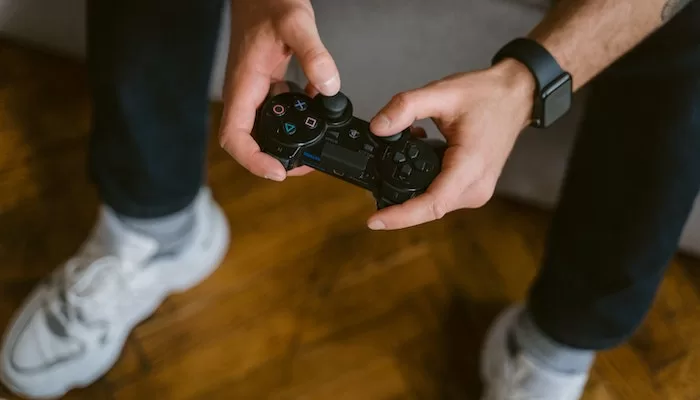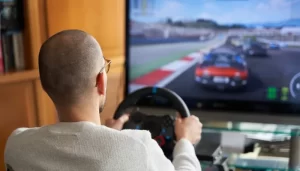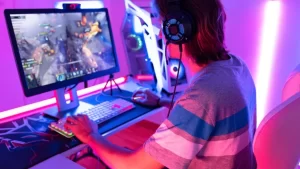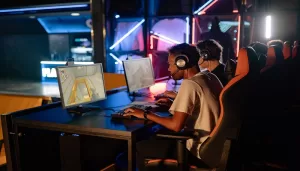The New Athlete: A Look at the World’s Biggest Skill-Based ‘Sports’

The rise of eSports has turned video gaming into a spectator sport—and top gaming pros into new virtual athletes. In fact, one of the most interesting topics in the industry is the discussion surrounding the latter. Now that modern eSports closely resembles traditional sports leagues, and the pros competing for a group like FaZe Clan are paid and traded similarly to pro athletes, are gamers a new echelon of athletes?
For the most part, there’s a clear distinction. Athletes use their bodies, while eSports gamers rely more closely on hand-eye coordination. Still, both groups use teambuilding skills, critical analysis of team and even player strategy, and the ability to learn and adapt new skills without losing their signature style.
Though this debate focuses on eSports athletes, the concept of comparing gamers to athletes isn’t new. In fact, this discussion has been around in some form for decades. Let’s explore some of the top professions that involve gaming skills and how they stack up compared to traditional sports athletes.
Poker Provides an Early Framework
The first gaming arena to build out infrastructure similar to traditional sports was poker. Back in the 1980s and 90s, the World Series of Poker (WSOP) helped turn Texas Hold’em (amongst other variations) into a global pastime. Remote viewers could tune in to channels like ESPN to watch the tournament unfold. The invention of the hole cards generated more interest—which was soon tripled by the introduction of online poker in the early 2000s.
At this time, players who learned poker rankings and basic strategies from watching on live TV were able to transform their hobby into a profession. Through online qualifiers, they could even find themselves competing with the greats on live TV. Like traditional athletes, the greats earned fame, fortune, and more than a few sponsorship deals. Many have also landed in the Poker Hall of Fame—which was established in 1979, only twenty years after the Naismith Basketball Hall of Fame.
Building a Competitive CCG Deck
Poker is the best early example of a mental sport being on par with traditional athletics. However, around the same period that WSOP helped spread poker around the world, collectible card games were also finding success with gaming fans. Collectible card games (CCGs) include titles like Hearthstone and Gwent—except the originals weren’t digital games.
In the 1990s, Magic: The Gathering amassed a huge following. To succeed, players must slowly build on their deck, gathering things like magic, artifacts, and more. Their ability to take on opponents directly correlates to their deck. In the 90s, other hits like Yi-Gi-Oh! and Pokémon helped add to the hype. Given the collectible nature of the game, some players are able to use purchasing power to stay unstoppable—which isn’t dissimilar to a pro sports franchise that has endless pockets.
Trailblazing Speedcubers
Before we move on to modern eSports, one more industry deserves a bit of attention. In 1982, the first World Rubik’s Cube Championship was held. Since then, the sport has taken off globally. Players compete to finish a Rubik’s cube under a variety of challenging circumstances. For example, players might only use one hand or might even be blindfolded. Given the element of hand-eye coordination, it’s worth pointing out that ‘Speedcubers’, as they’re known, rely much more on their physical responses than CCG players or poker pros.
eSports Athletes
Lastly, let’s touch on what makes eSports gamers competing on top teams in competitive leagues on par with traditional athletes. As mentioned above, the infrastructure of eSports closely resembles international sports competitions—and for good reason considering leading athletes were some of the first eSports investors.
However, as exemplified by the activities above, it’s clear that skill-based gamers (whether poker or Magic: The Gathering players) don’t need to push their bodies to the limit. Sure, they need to invest in quality equipment to take care of their bodies, but they more closely train their minds. In other words, there’s a clear divide.
However, the International Olympic Committee (IOC) is now closely looking at eSports for inclusion in future events. Already, many Olympic events have included peripheral eSports tournaments to engage eAthletes, as some are now calling them.
















